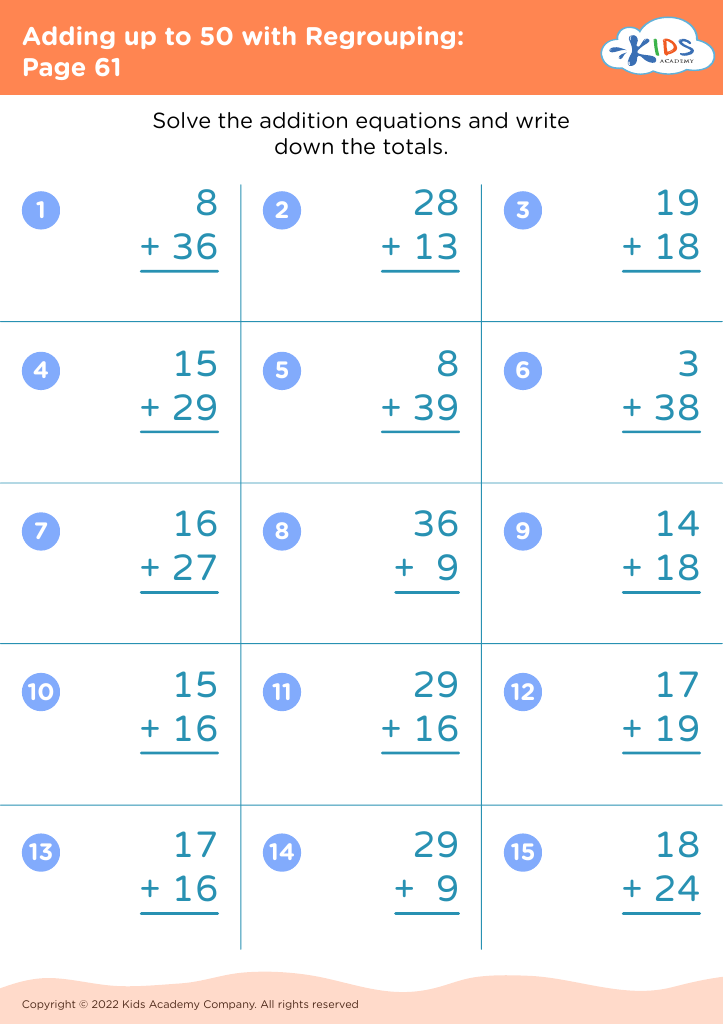Practice inference skills Addition Worksheets for Ages 6-7
3 filtered results
-
From - To
Enhance your child's mathematical abilities with our "Practice Inference Skills Addition Worksheets" designed specifically for ages 6-7. These engaging worksheets help young learners develop critical thinking and reasoning skills as they solve enjoyable addition problems. By integrating inference skills with basic math, children will learn to analyze and interpret information, fostering a deeper understanding of numerical concepts. These worksheets promote hands-on learning, encouraging students to think creatively while reinforcing their addition capabilities. Perfect for classroom or home use, our resources create a fun and interactive atmosphere for children to practice essential skills. Download your worksheets today and support your child's math journey!
Parents and teachers should prioritize the development of inference skills in addition for children aged 6-7 because these foundational abilities enhance critical thinking and problem-solving. Inference skills help children understand not just mathematical concepts, but also the logic behind them. Rather than simply memorizing addition facts, young learners can grasp the 'why' behind the operations, which strengthens their overall comprehension of mathematics.
At this age, children are beginning to see connections between numbers, patterns, and real-life applications. Encouraging inference skills in addition helps them recognize relationships, develop mental math strategies, and make predictions based on given information. This cognitive development fosters confidence in tackling more complex mathematical challenges in the future.
Moreover, strong inference skills not only benefit mathematical understanding but also promote literacy and critical thinking across subjects. As children draw conclusions and make connections, they learn to analyze situations, a crucial skill for academic success and everyday problem-solving.
For parents and teachers, creating engaging, relevant experiences that promote these skills—such as using manipulatives, real-world scenarios, or games—can develop a child's enthusiasm for learning, leading to a deeper, more meaningful understanding of math. Investing in these skills now will prepare children for lifelong learning and success.























